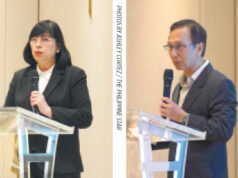Opening up new opportunities for growth
In the Philippines, a significant part of the work force is employed in the service sector. Due to the rise of shared services and information technology-business process outsourcing (IT-BPO) firms, from once a largely agricultural nation, the country has developed into an economy that depends on offering a variety of services mostly to foreign corporations and investors in order to grow.
According to the draft of the World Bank’s Philippines Economic Update April 2018, the service sector is “expected to remain the main driver of economic growth” for the Philippines, projected to grow from 6.7% year on year in 2017 to 6.8% year on year in 2018-19.
“During the past five years, [the service sector] consistently contributed roughly three-fifths of the country’s overall economic growth in 2018 and 2019. Among the service subsectors, the IT-BPO industry is expected to grow at an average annual rate of 5.6% between 2016 and 2022, with revenues projected to reach US$38.9 billion in 2022,” the report said.
“In 2017, earnings from BPO services amounted to US$22.1 billion, they grew by 9.6% year on year.”
The average growth, however, is slower compared to what the industry has seen in the past, signaling a need to offer higher value-added services.
The World Bank suggested that the country could “leverage its strong performance in BPO to expand other service-based sectors and create more productive employment opportunities, including jobs with skill requirements compatible with workers from poor households”.
Given that a majority of Filipinos, even those in the lower economic brackets, are proficient in English and possess skillsets that satisfy the demands of such services, expanding the shared services and outsourcing industry could not only provide the Philippines with a new opportunity for growth, but also give Filipinos more varied and meaningful career paths.
Generally, shared services and outsourcing can be classified into three major segments, which are as follows:
The Business Process Outsourcing (BPO) involves the contracting of the operations and responsibilities of specific business functions or processes to a service provider. BPO firms offer jobs that are more transactional-based, such are the cases with call centers, payroll processing, or finance and accounting, etc.
Information Technology Outsourcing, meanwhile, refers to the use of service providers to effectively deliver IT-enabled business process, application service and infrastructure solutions for business outcomes. These companies offer employment to computer programmers, data security experts, and the like.
Finally, Knowledge Process Outsourcing refers to the outsourcing of core information-related business activities which are competitively important or form an integral part of a company’s value chain. These types of jobs require advanced analytical and technical skills as well as a high degree of specialist expertise. Such services cover a broad range of fields, from animation and design, market research, law, and biotechnology.
The demand for such services is still growing to this day. For many Filipinos, shared services and outsourcing jobs can be very lucrative careers, with the average salaries ranging from P200,000 a year for entry-level positions to over P800,000 a year for management positions.
As the Philippines already has become a powerhouse in the shared services and outsourcing sector, this is a huge opportunity to drive that momentum forward. Filipinos are already acknowledged worldwide as a competent and reliable work force. This is a chance to test the limits of that ability and to show the world what else Filipino talent can offer. — Bjorn Biel M. Beltran



